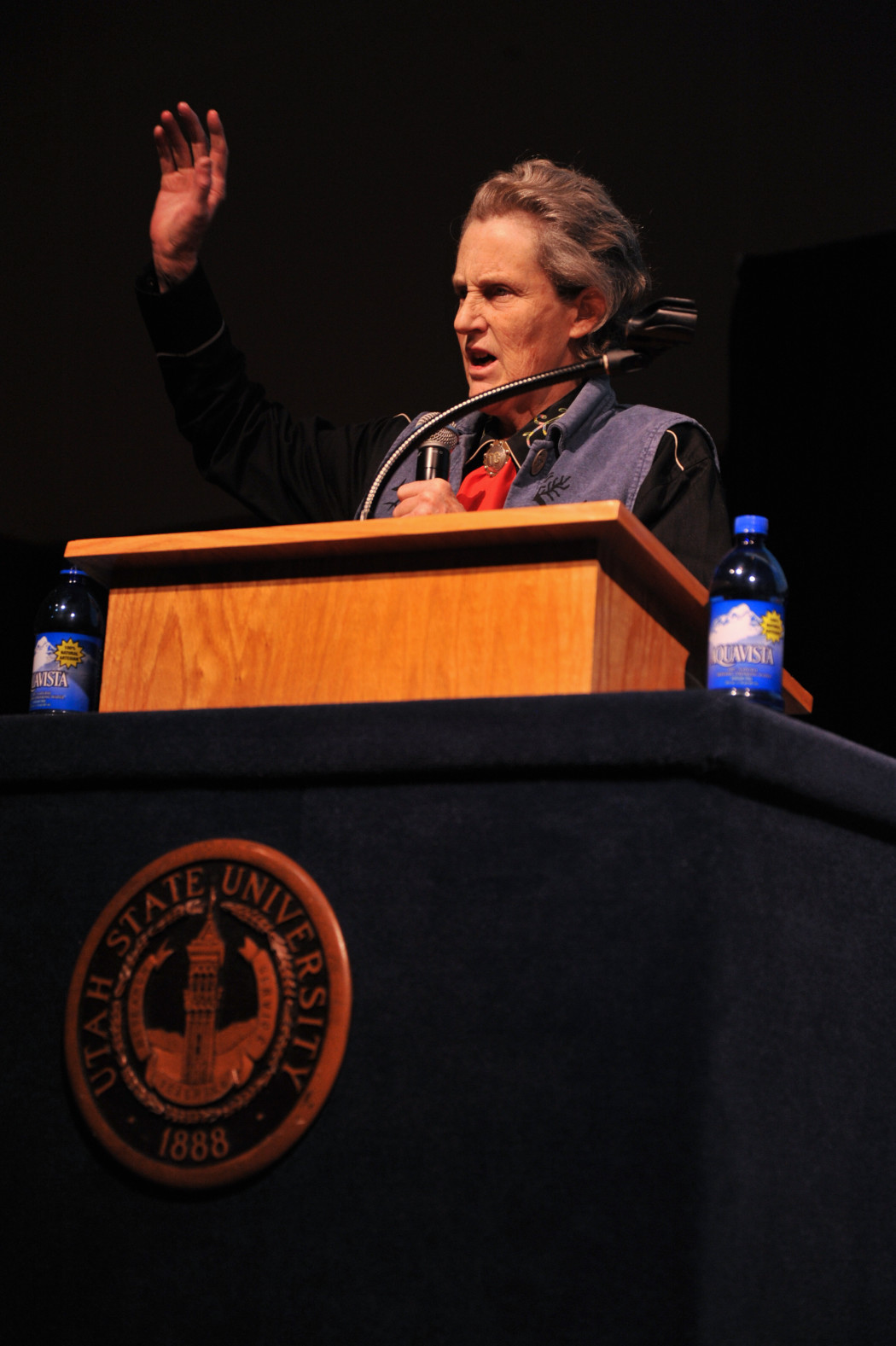Animal scientist and autistic activist visits USU
The TSC ballroom was packed on Thursday, March 31, with a significantly high proportion of people with therapy dogs, canes and wheelchairs. Many of them were there to snap a picture with their hero and world-renowned animal scientist and autistic activist Temple Grandin.
“Temple Grandin is a good role model for a lot of disabled people,” said Caroline Blair, a freshman studying psychology.
Grandin was diagnosed with autism in 1950. The doctors told her parents that she should be institutionalized, but they raised Grandin in their home. Grandin said her ’50s upbringing helped cultivate her social skills; her mom even pushed her to be the hostess at different parties. Grandin said she was forced to further her social skills and her hands-on thinking by having several jobs as a teenager.
“The biggest problem with autistic kids is they don’t learn how to work,” she said. “It is really important for those kids to get jobs and to learn social skills.”
These days, Grandin dresses with a denim vest, a western dress shirt underneath and a red country scarf tie to complete her country girl persona. She was featured in an HBO movie titled “Temple Grandin” and she has a TED talk called “The world needs all kinds of minds.”
Grandin said there are four different kinds of thinkers; her autism pushed her to be a visual thinker. Grandin attributes that visual thinking to her ability to build innovative loading ramps and handling chutes for livestock.
“Kids are getting too far away from practical and hands-on thinking,” she said. “They need to get a job where they can use their hands. Kids are spending too much time inside playing video games today and they’re not getting out there and doing this stuff.”
The school system can be a huge issue for those high-functioning kids with learning disabilities because they need a diagnosis to get treatment, Grandin said. There are a lot of kids who end up using the diagnosis as a crutch, which hinders them from doing things with their lives. Those kids end up in their parent’s basement on social security. Those people should be saving social security for those who really need it, she said.
“I am concerned when high-end kids get their label crutch,” she said. “They need to be stretched, but don’t surprise them.”
Grandin said she was furious to see a high-functioning, 12-year-old autistic boy put in a classroom with kids with severe learning disorders. She said she was concerned that boy wouldn’t be able to grow to his full potential by being in that kind of environment.
“I am seeing too many kids over-coddled and they don’t know how to shop or do laundry,” she said.
There are too many kids that are labeled with mental disorders. There are a lot of weird kids and a lot of computer programmers who are probably on the autism spectrum, Grandin said.
“I have been interviewed by journalists who are probably on the autism spectrum,” she said. “When it comes to the autism spectrum, it is a ‘don’t ask, don’t tell’ policy.”
During the event, one mother raised her hand and asked Grandin what she should do about her son who was a couple of grade levels behind in reading.
“If your kid is falling behind at school, find what he is good at and push him in that direction,” she said.
Grandin said not everyone needs to go to college. Instead, those who are great at working with their hands should be getting experience in the field, whether they are working on a farm or they are building things.
Kaylyn Madany, a senior studying math, said she thought it was really “cool” to see Grandin speak in person.
“The main reason I came is I saw the movie of her,” she said. “It was cool to see her overcome the limitations people put on her.”
Holly Huggins is a sophomore studying special education. She said it is very important for her career to learn about people with mental disorders.
“It was great because we are listening to someone who is autistic as opposed to someone who doesn’t have autism speak about it,” she said.
— morgan.pratt.robinson@gmail.com

